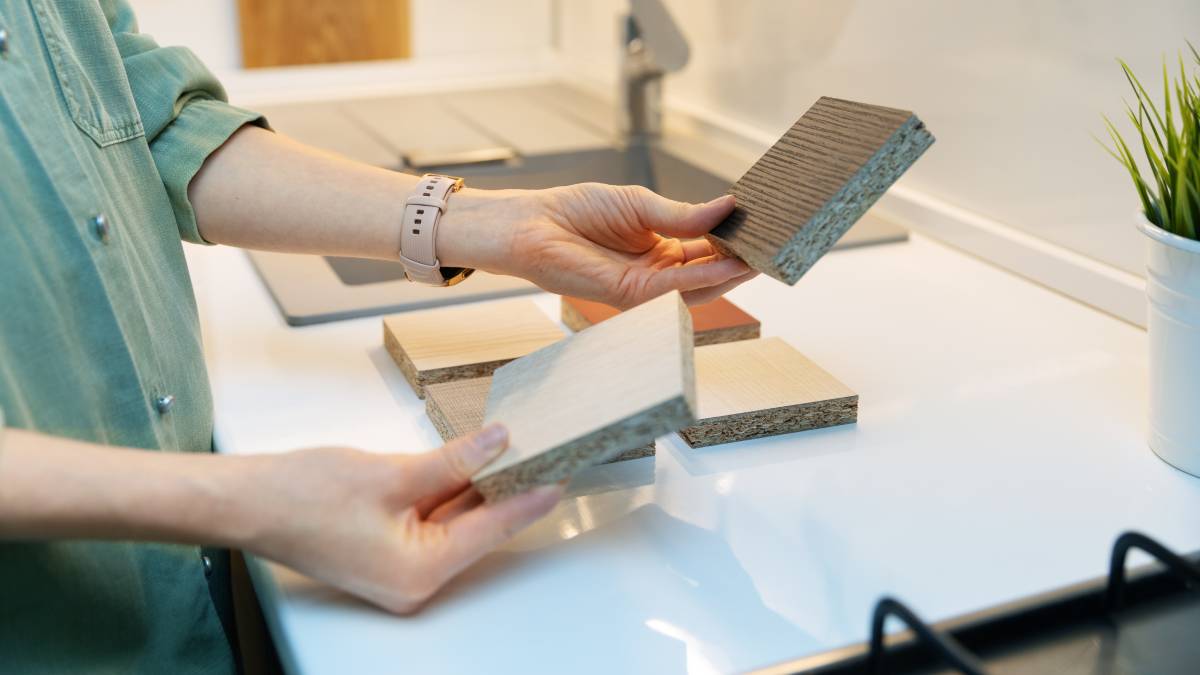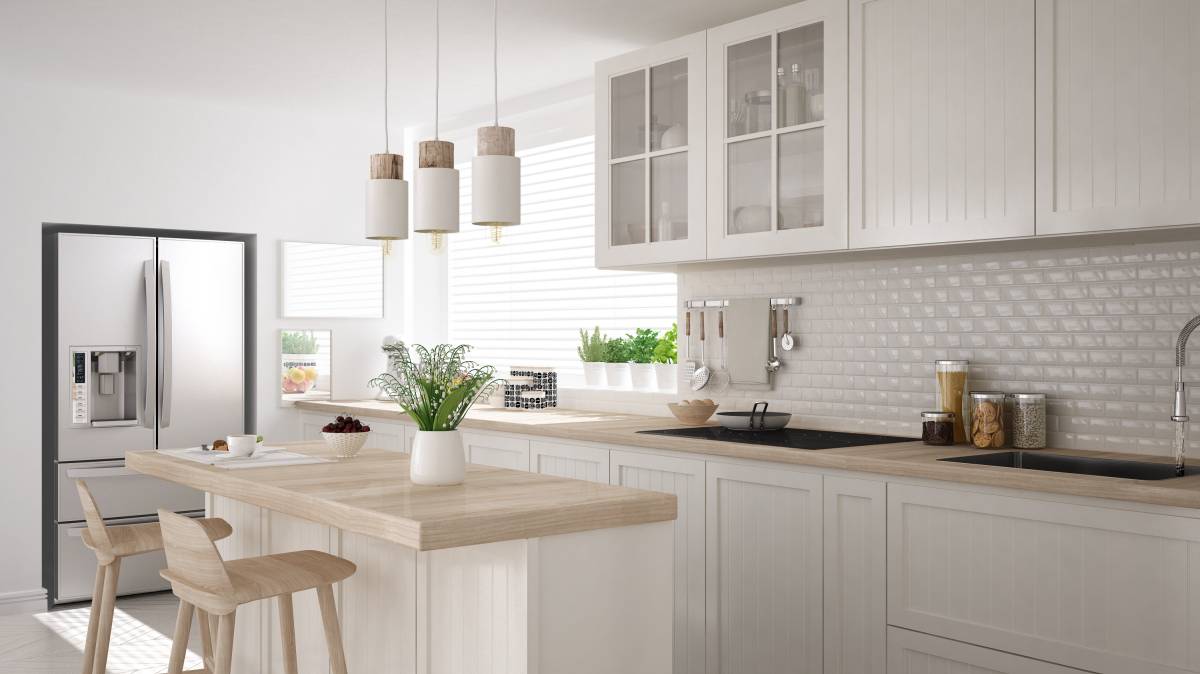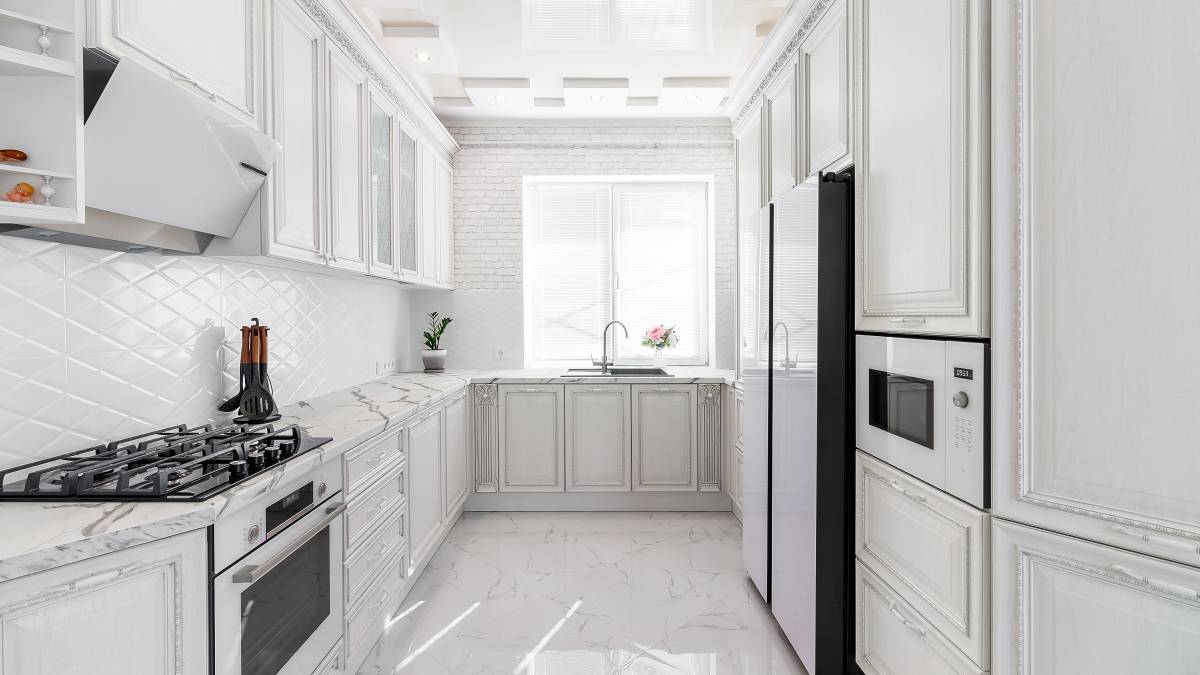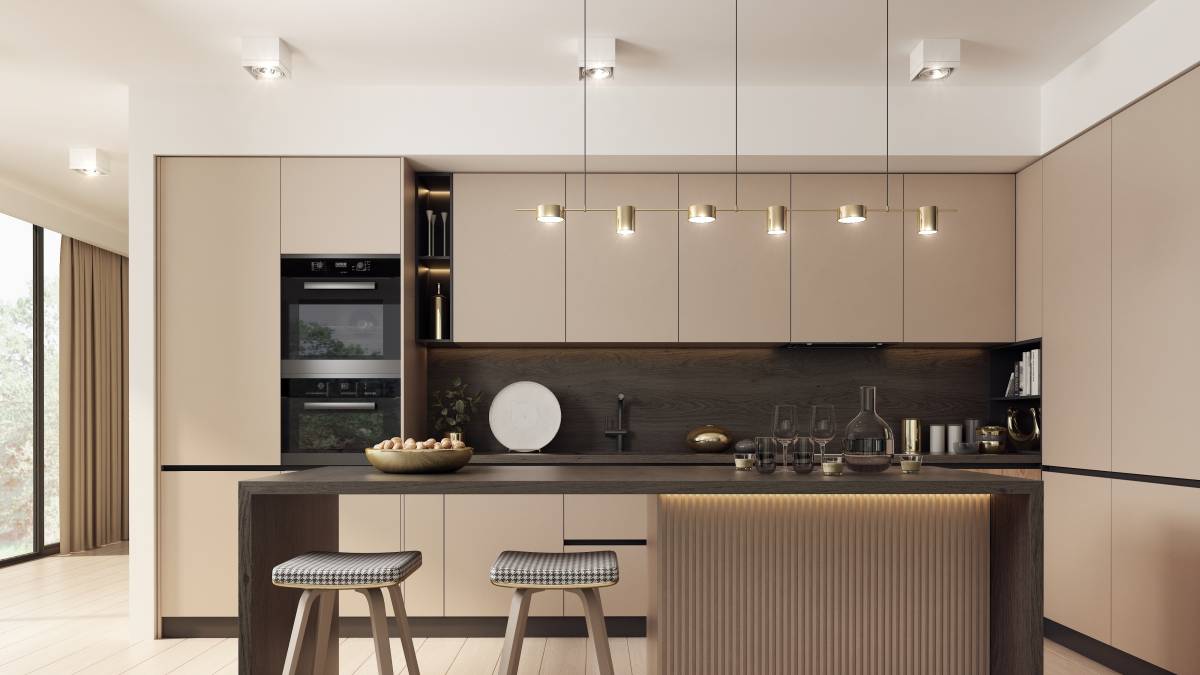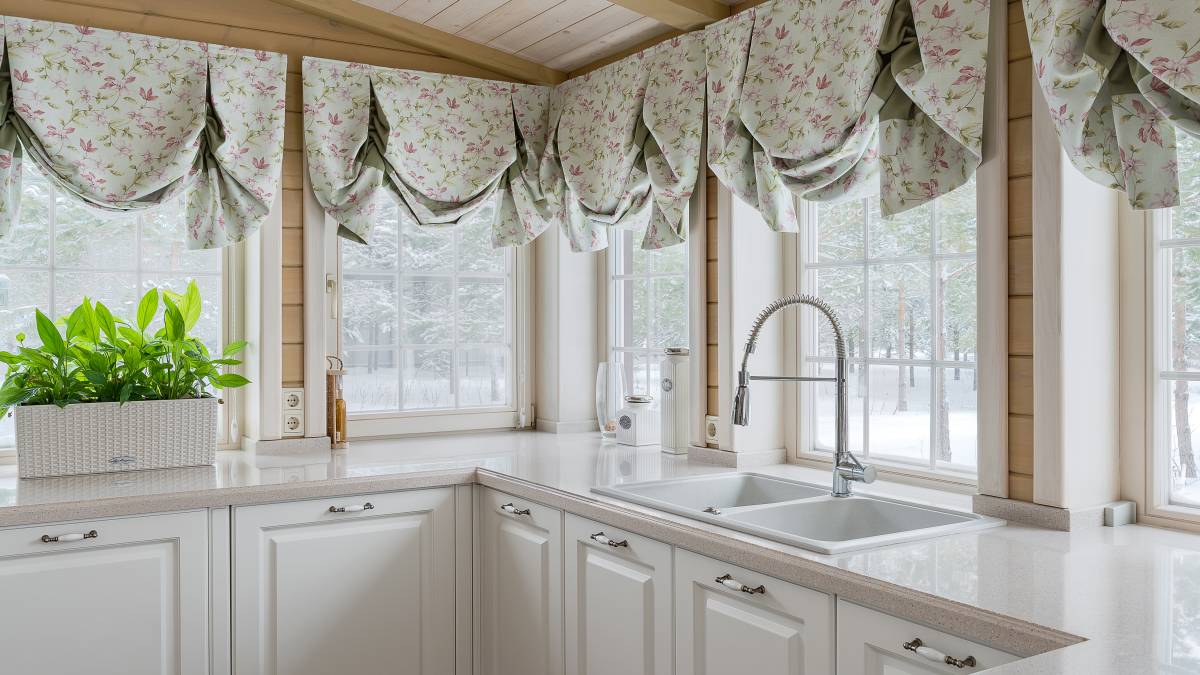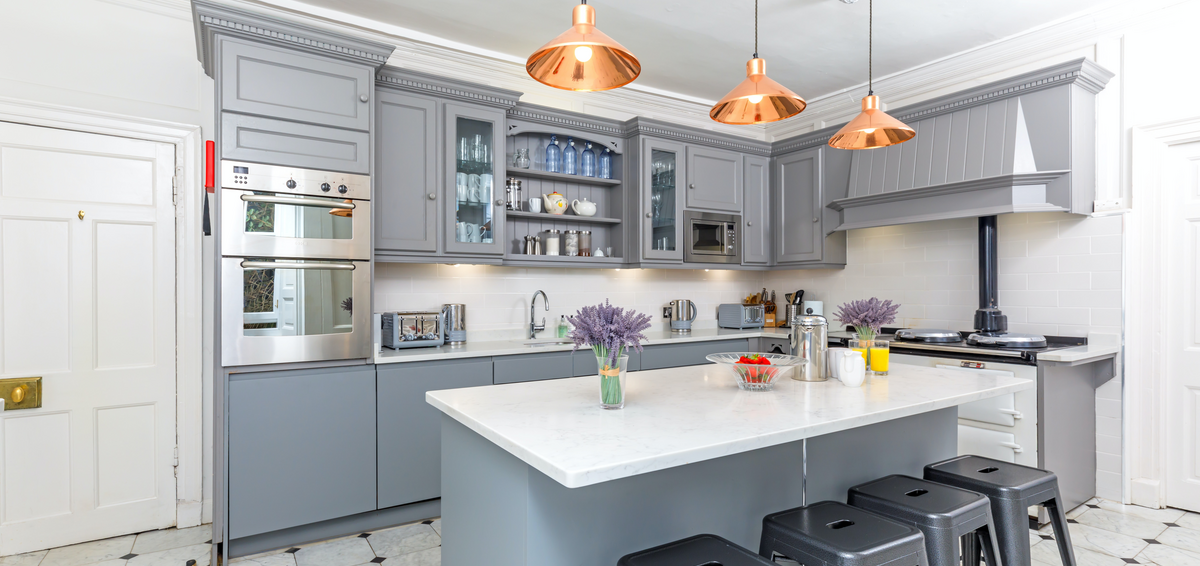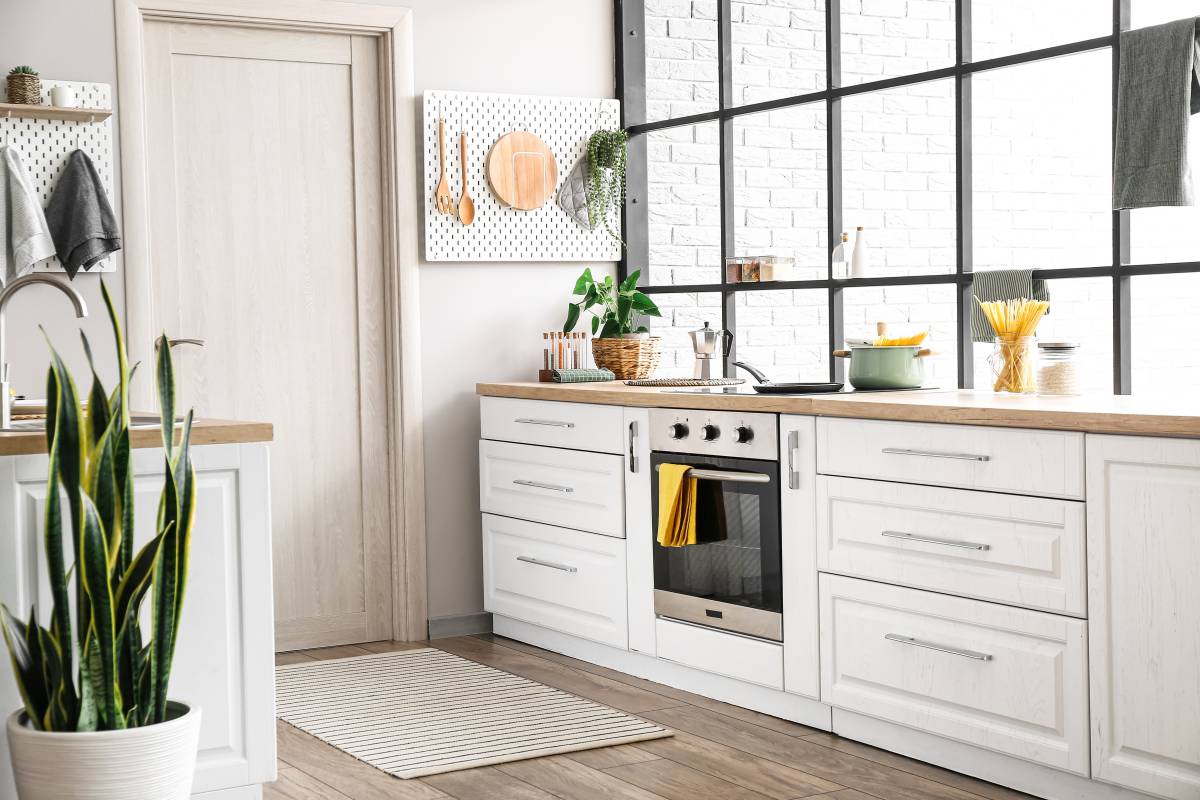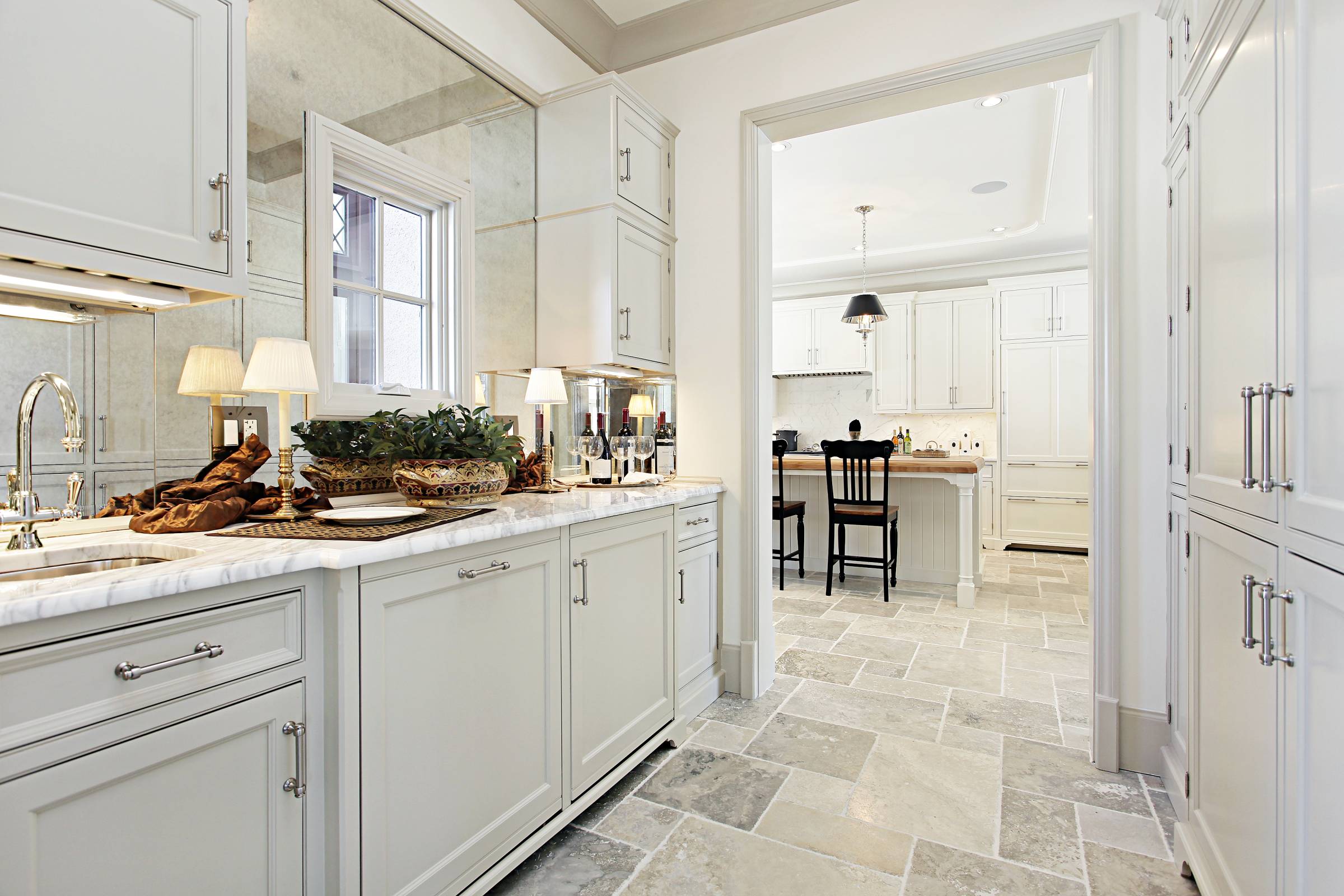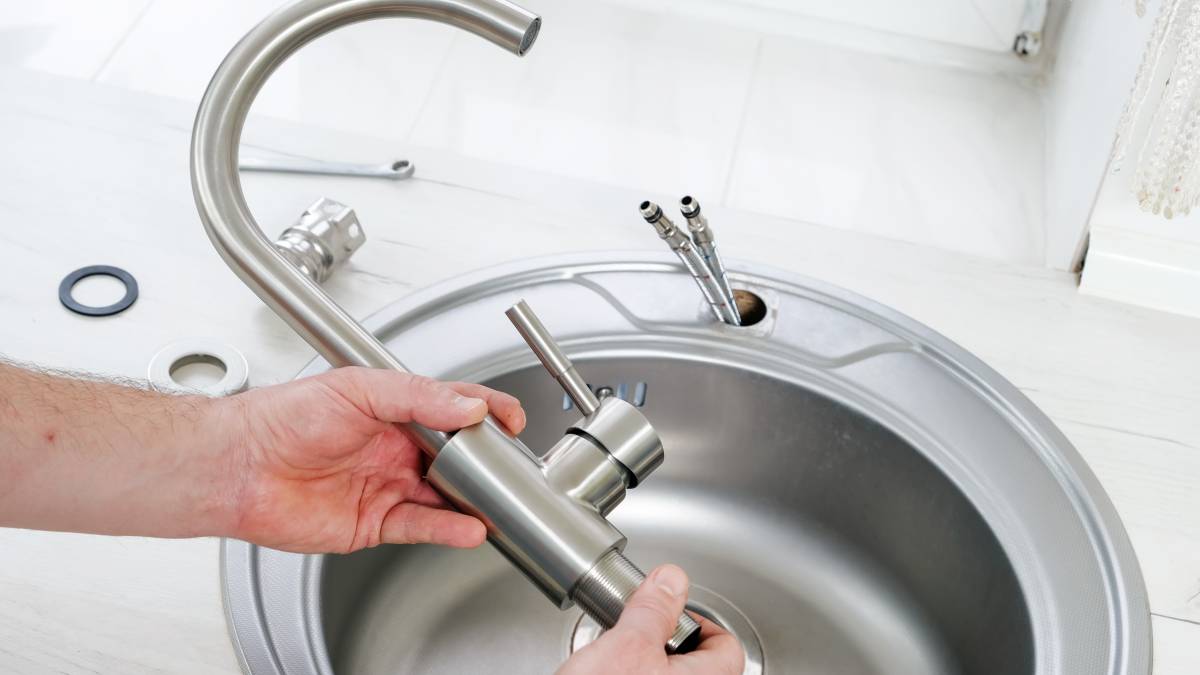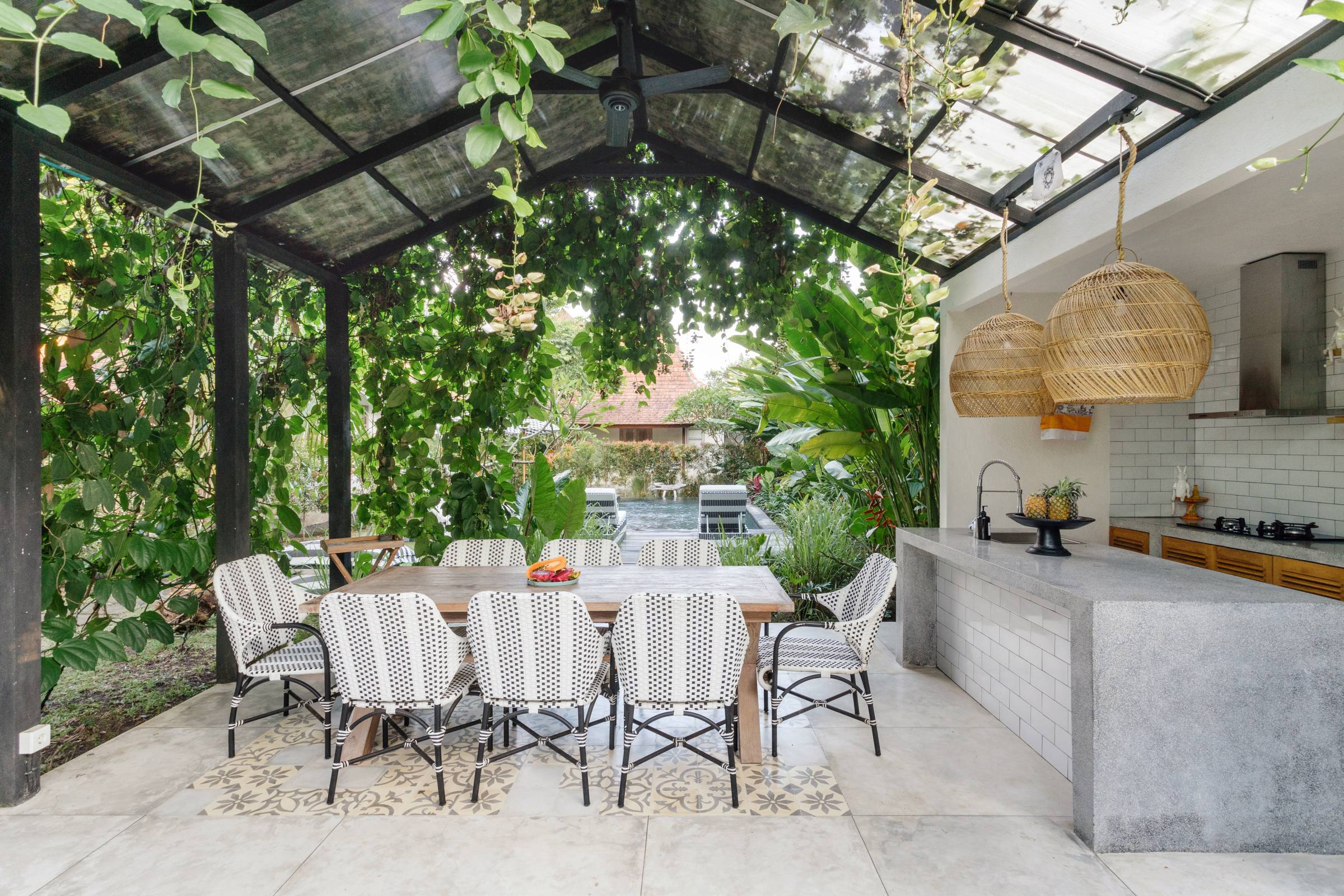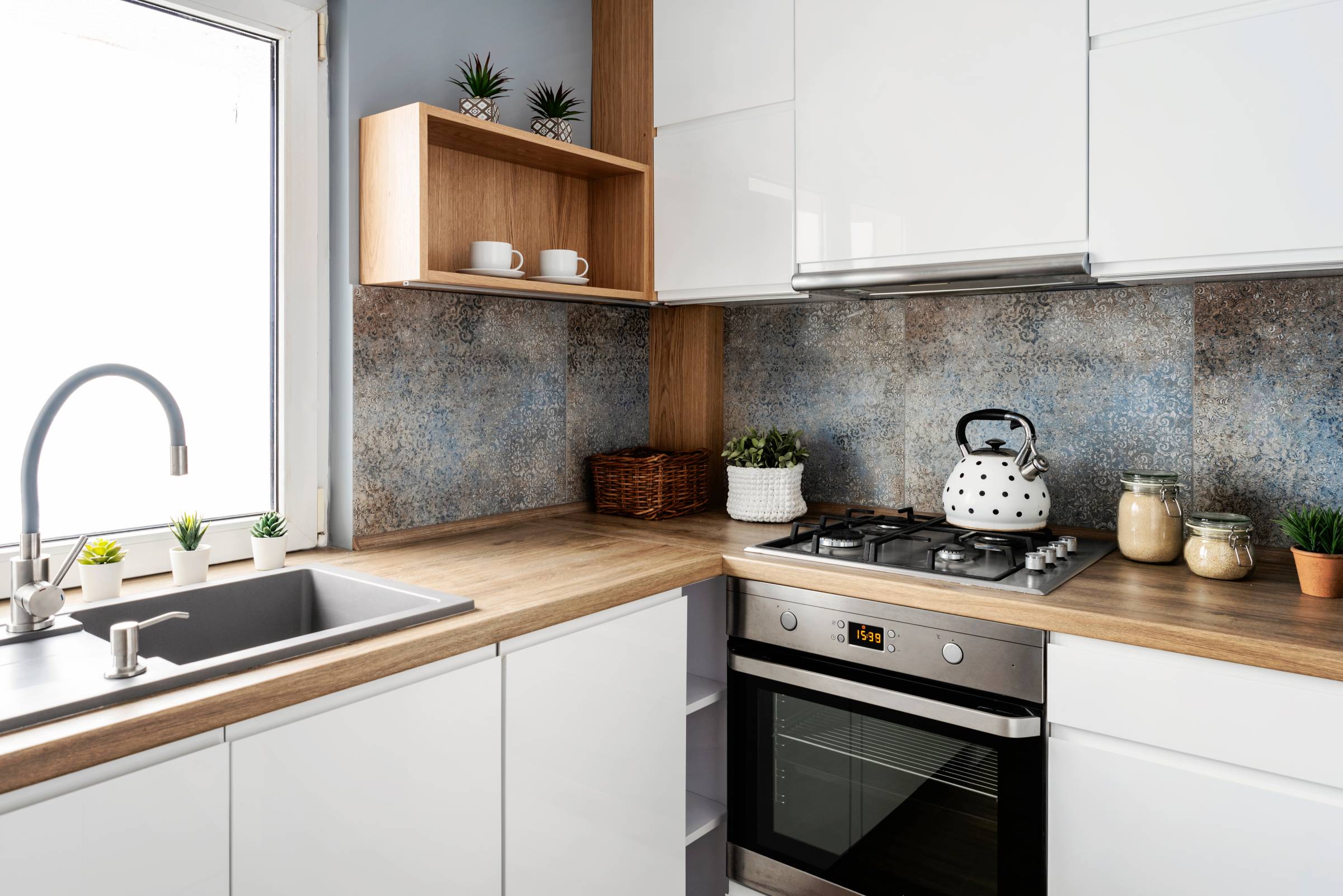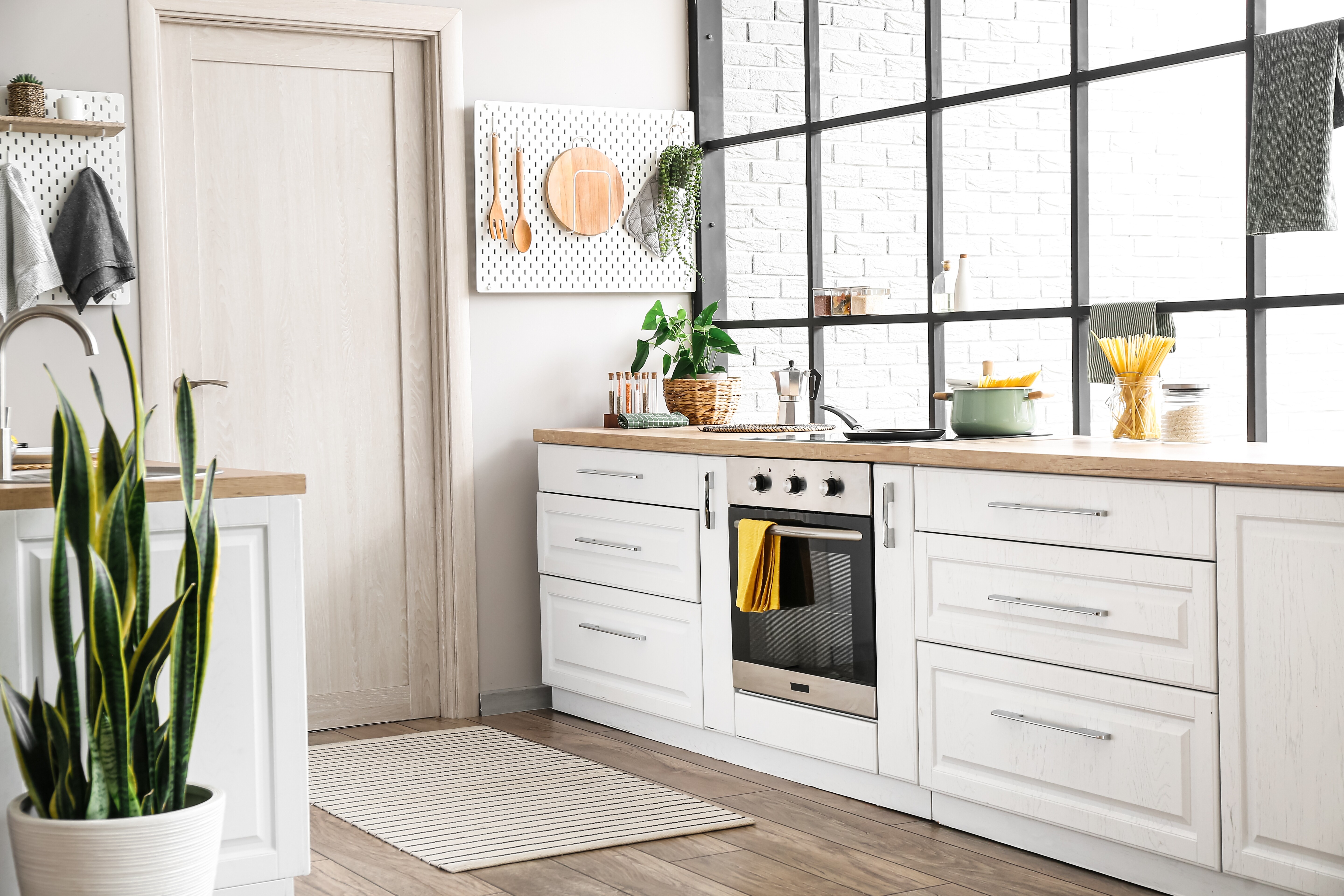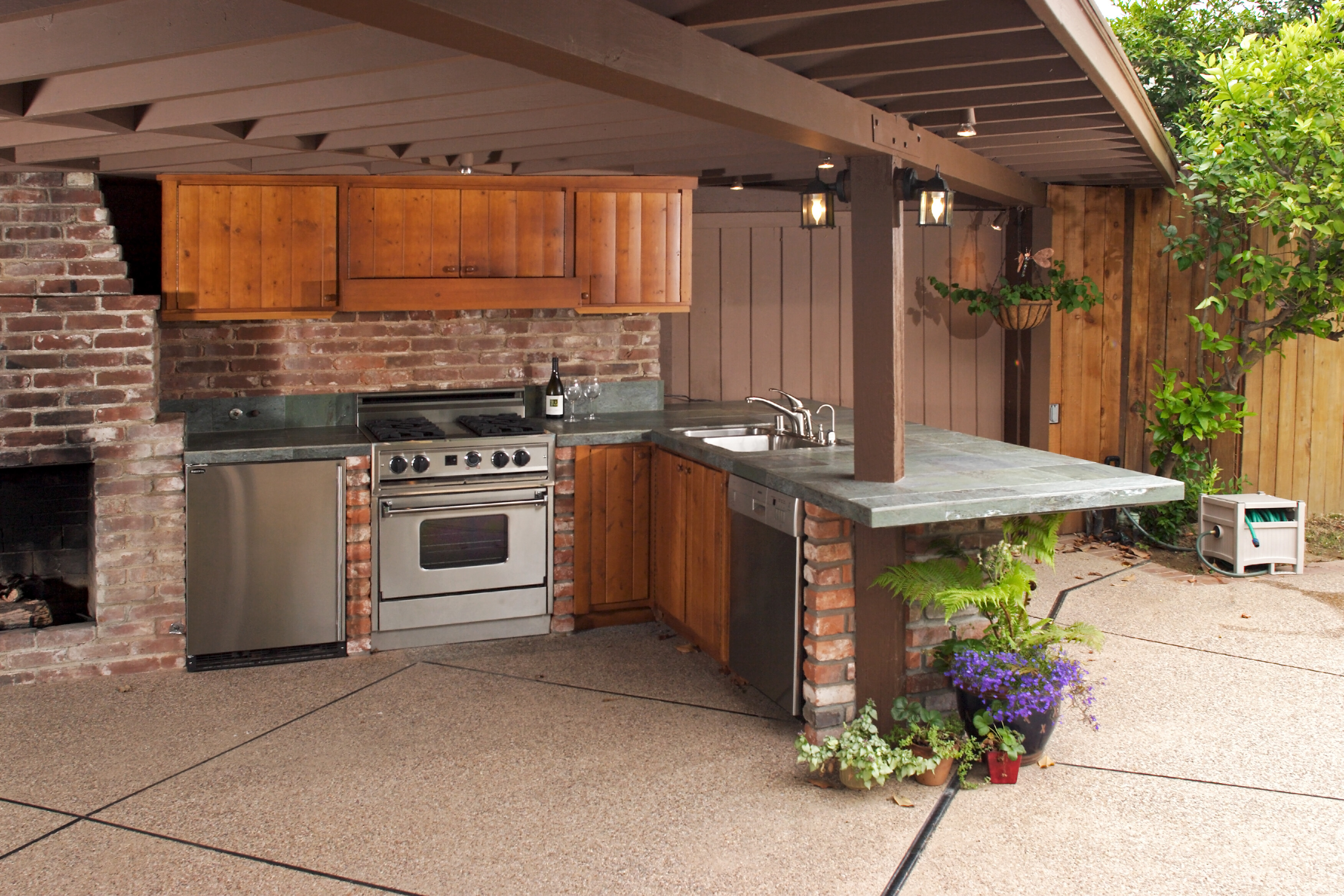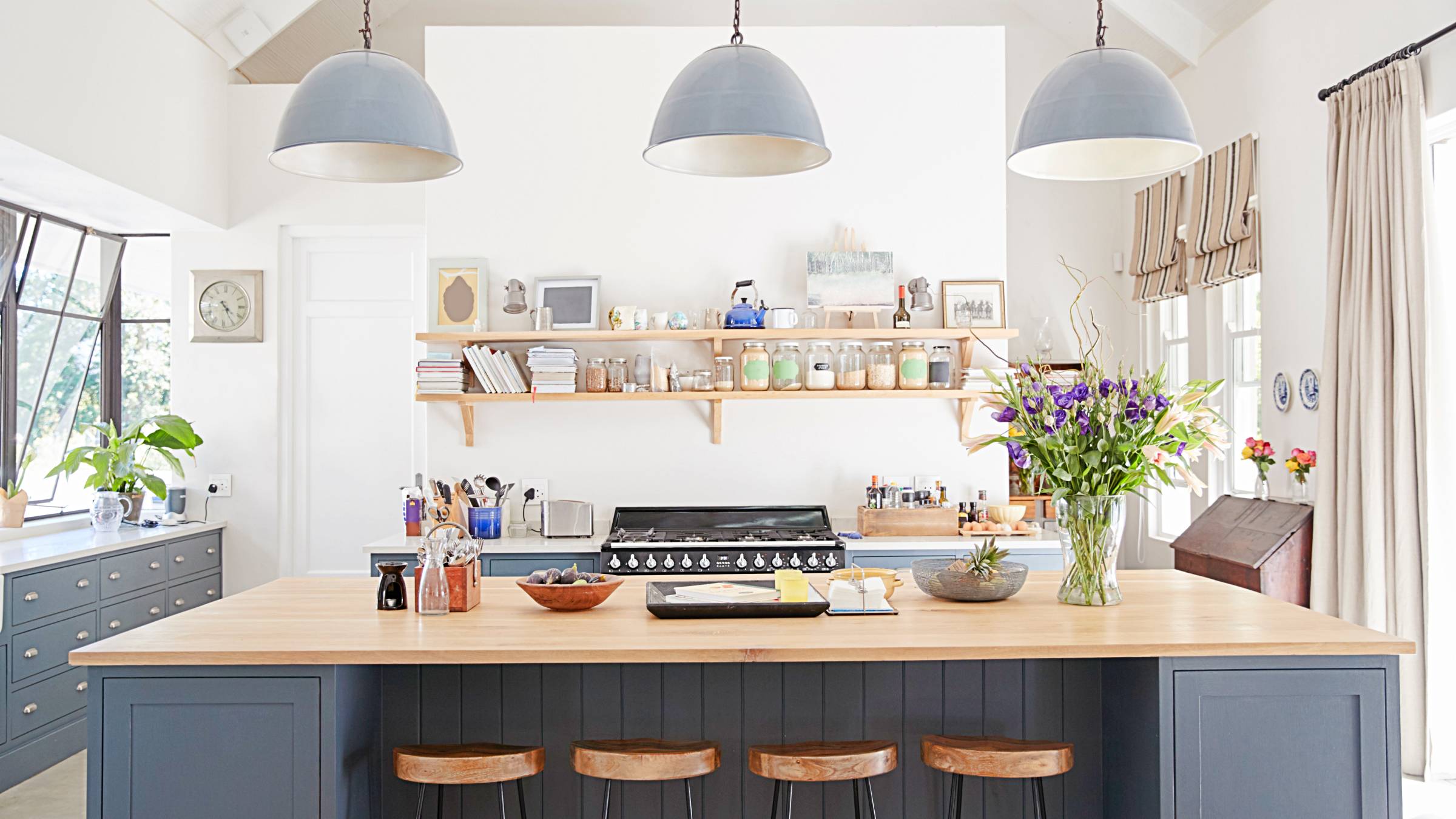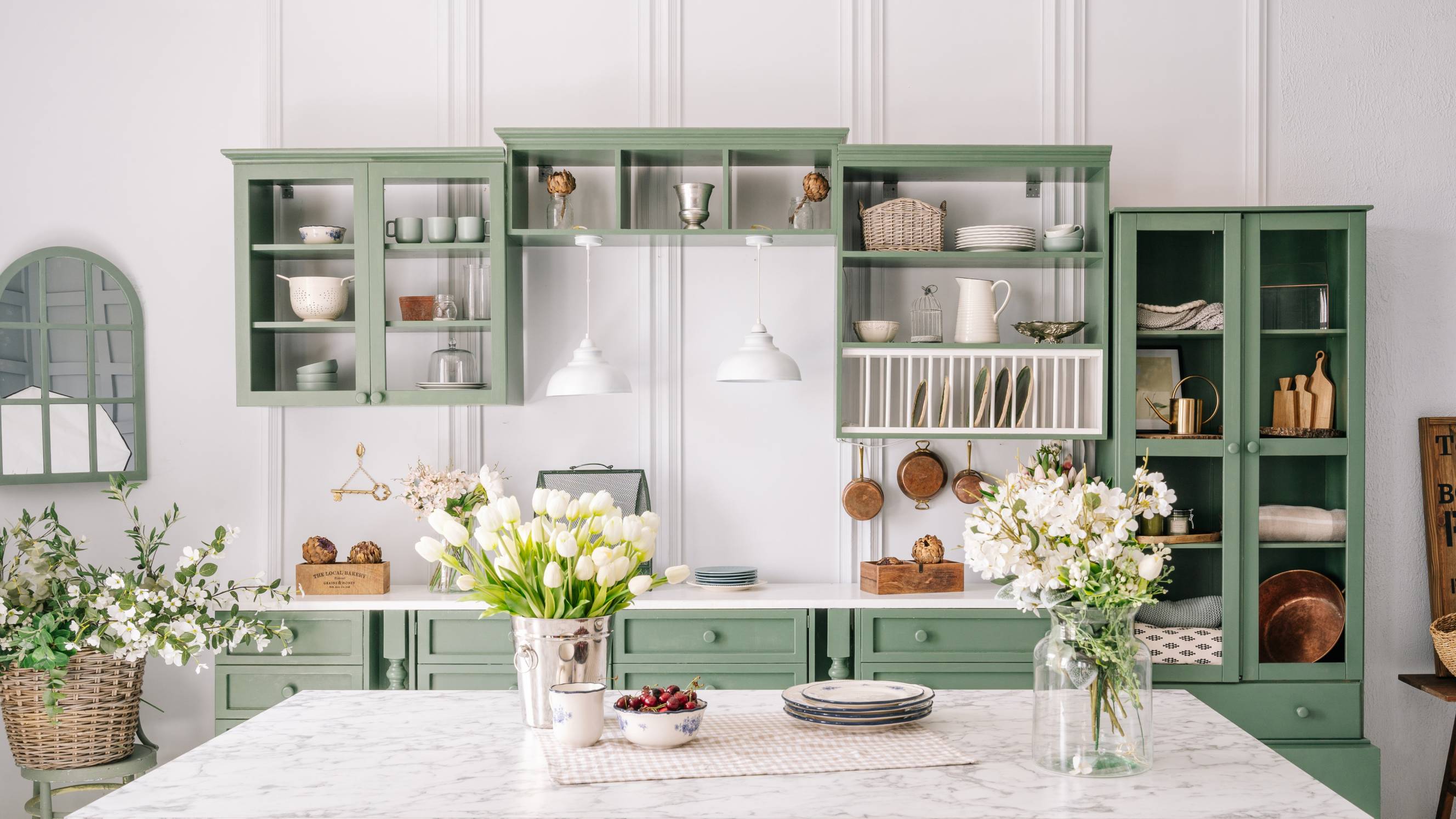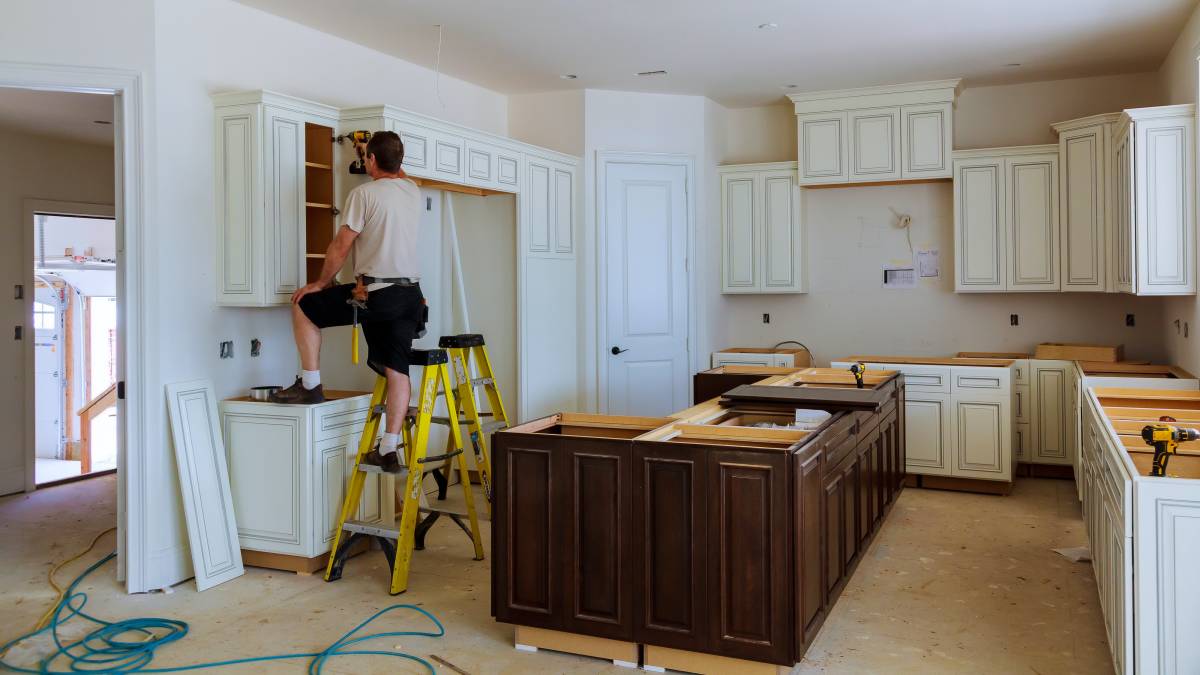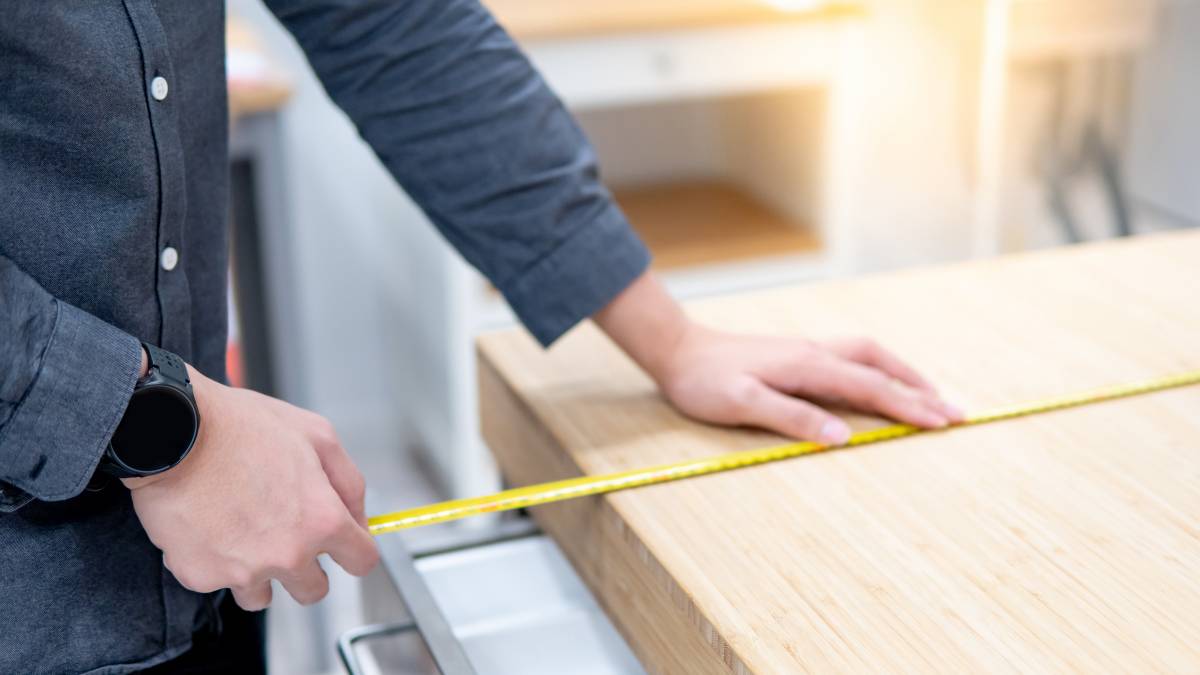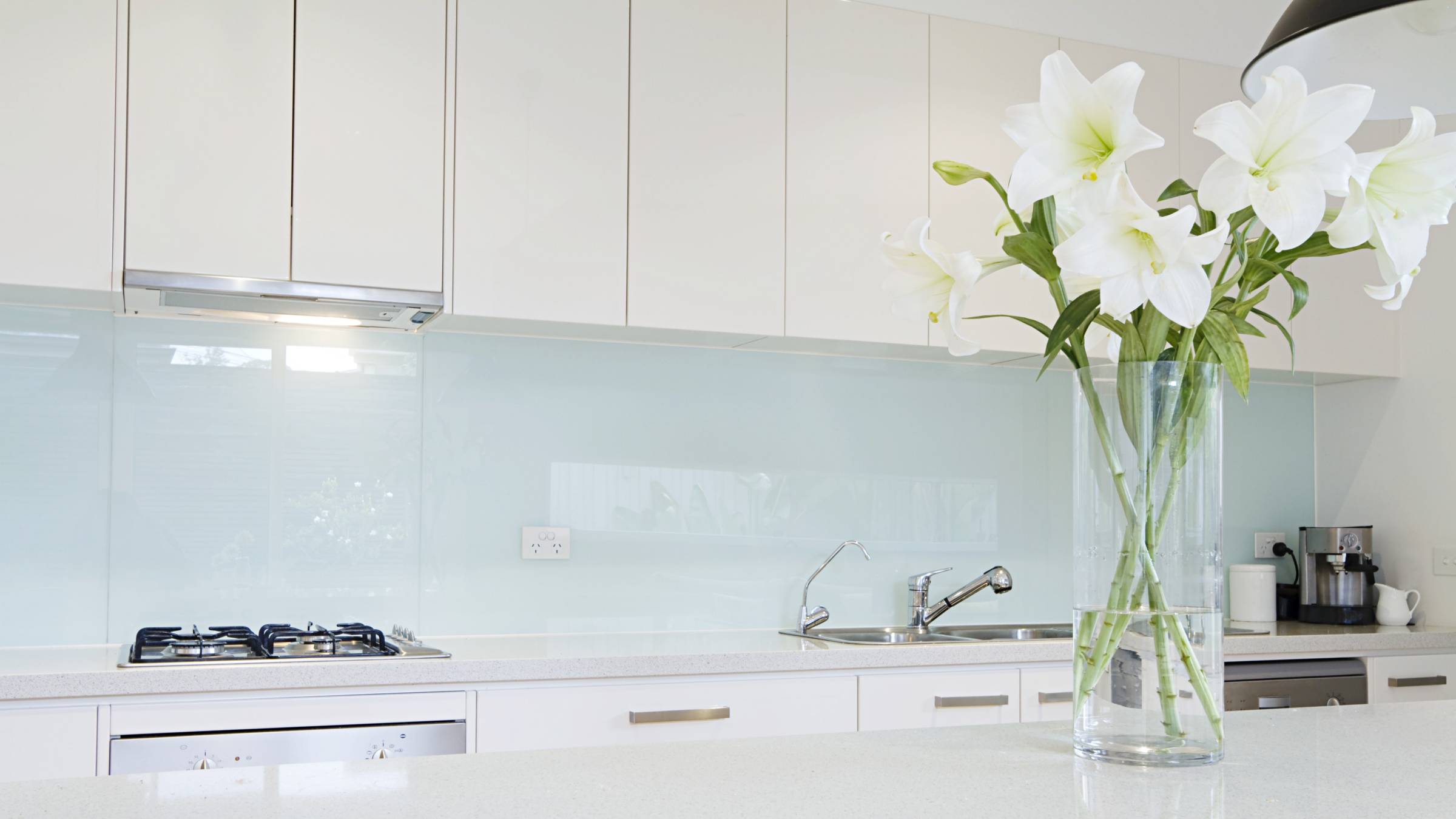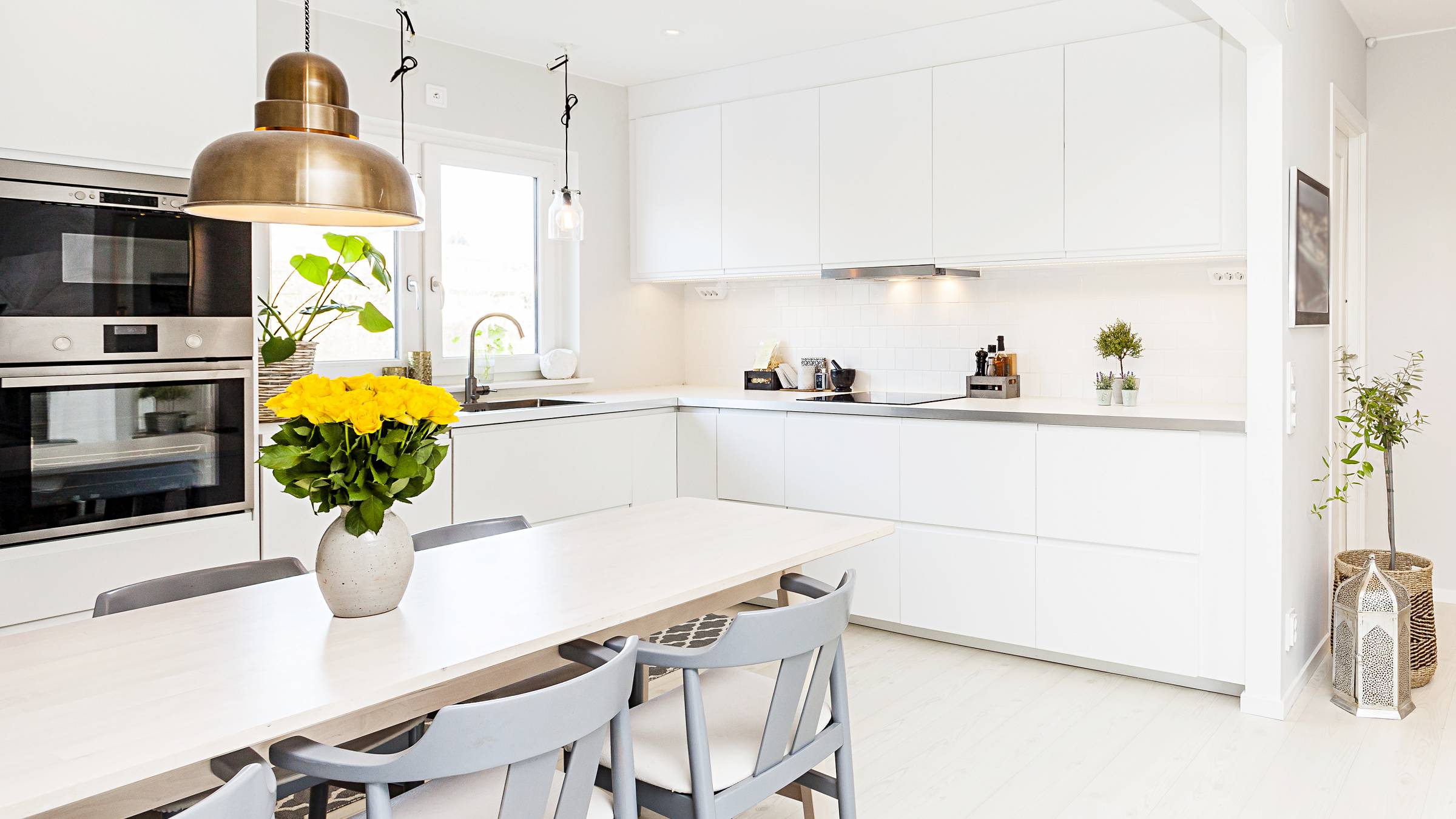- Home/
- Comparisons/
- Kitchen Renovation/
- Quartz vs Granite Benchtops
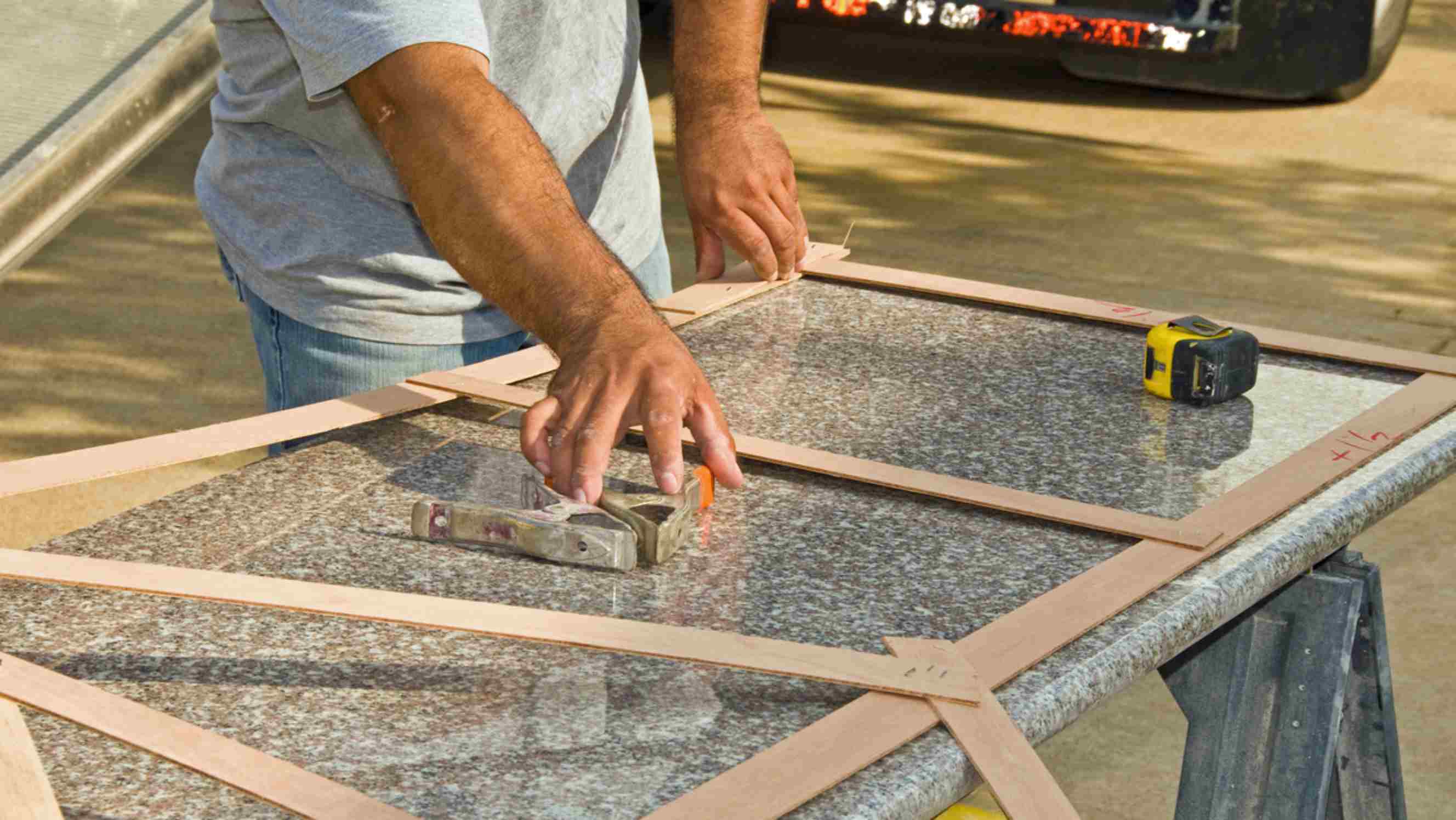
Quartz vs granite benchtops: Which is the better choice?
Comparing quartz and granite benchtops based on appearance, heat resistance, durability, and more.
Hire a kitchen renovation contractorPublished on

Written by Jen A.
Staff Writer
Read more about our contributor
Key Facts
- Quartz benchtops are engineered surfaces made from natural quartz crystals, resin, and pigments. They offer consistent colour and pattern options.
- Granite benchtops are natural stone surfaces quarried directly from the earth. They feature unique, one-of-a-kind patterns.
Choosing the right benchtop for your kitchen can feel overwhelming with so many options available. Quartz and granite are two of the most popular choices, but understanding their differences is essential to avoid costly mistakes.
This guide breaks down the key features of quartz vs granite benchtops, so you can make the best decision for your kitchen renovation.
What is a quartz benchtop?
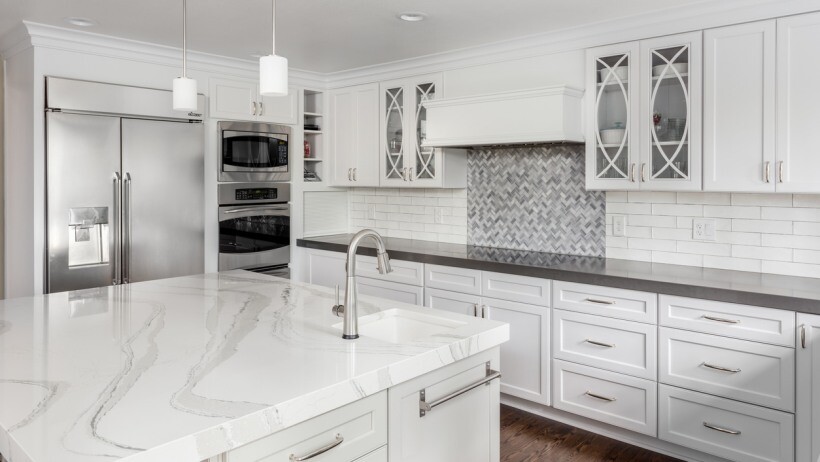 A sleek quartz benchtop adds elegance and durability to this modern kitchen design (Source: iStock)
A sleek quartz benchtop adds elegance and durability to this modern kitchen design (Source: iStock)
A quartz benchtop is an engineered type of benchtop created by binding natural quartz crystals with resin, pigments, and sometimes small amounts of recycled glass or metallic flecks. This process produces a versatile material that mimics the appearance of natural stone while offering enhanced durability and uniformity.
One of the standout features of quartz is its non-porous nature, making it highly resistant to stains, scratches, and bacteria. This quality makes quartz a practical choice for busy households or families with young children.
What is a granite benchtop?
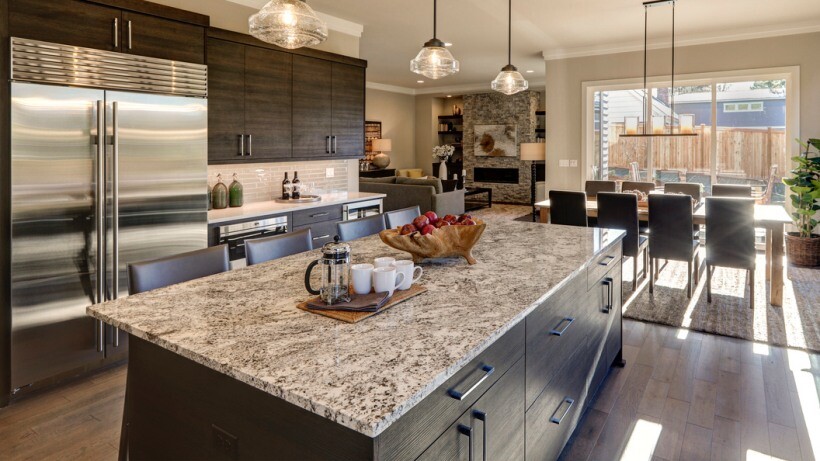 Granite benchtops bring timeless beauty and durability to kitchens, showcasing unique natural patterns that elevate any space (Source: iStock)
Granite benchtops bring timeless beauty and durability to kitchens, showcasing unique natural patterns that elevate any space (Source: iStock)
Granite benchtops are made from solid slabs of natural stone, giving each piece a unique appearance. They’re preferred by most homeowners due to their stunning, one-of-a-kind patterns and earthy tones that bring a sense of timeless elegance to kitchens.
However, being a natural material, granite is porous, which means it needs regular sealing to maintain its resistance to stains and moisture. While it may require a bit more upkeep, many homeowners find its natural charm and durability worth the effort.
Granite vs quartz benchtops: Which fits your kitchen better?
If you’re deciding between granite and quartz, it’s essential to weigh several factors, including appearance, durability, maintenance, and cost. Here’s, let’s delve deeper into the difference between quartz and granite benchtops.
In terms of appearance
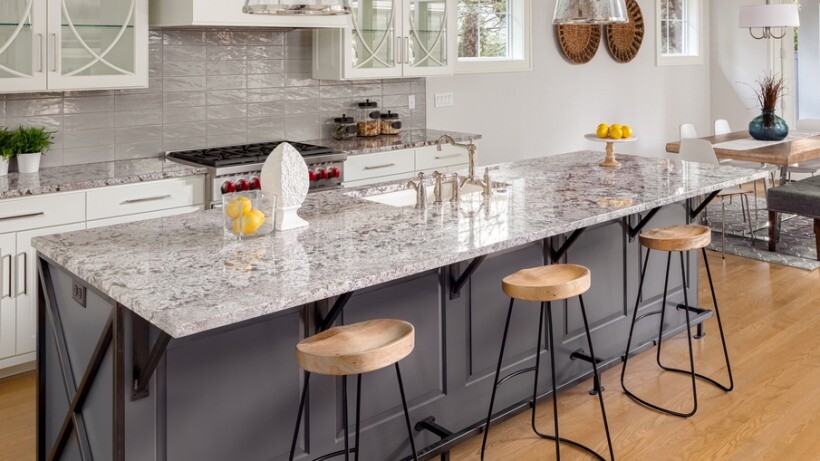 Granite benchtops offer stunning natural patterns that make each piece unique, adding a distinctive charm to any kitchen design (Source: Stock)
Granite benchtops offer stunning natural patterns that make each piece unique, adding a distinctive charm to any kitchen design (Source: Stock)
Quartz and granite both offer stunning options for homeowners exploring different kitchen benchtop ideas. Granite benchtop has a unique and natural look, with every slab featuring its own distinctive veining and textures. The unique beauty of this benchtop makes it perfect for kitchens aiming for a bespoke, luxurious feel.
Quartz benchtop, on the other hand, offers more consistency in colour and pattern, thanks to its engineered nature. It’s available in a broader range of colours, from bold, striking tones to subtle, elegant hues, making it ideal for modern kitchens that require a uniform aesthetic.
In terms of heat resistance
When evaluating kitchen ideas, think about how heat-resistant benchtops like granite or quartz can suit your cooking style.
Granite benchtops are highly heat-resistant due to their natural composition, making them an excellent choice for handling hot pans and pots directly on the surface without the risk of damage.
Meanwhile, quartz benchtops are less resistant to heat because they contain resin, which can be damaged by high temperatures. Placing hot cookware directly on a quartz benchtop can lead to discolouration or warping. For this reason, it’s highly recommended to use heat pads or trivets when using hot cookware to protect the surface.
In terms of durability
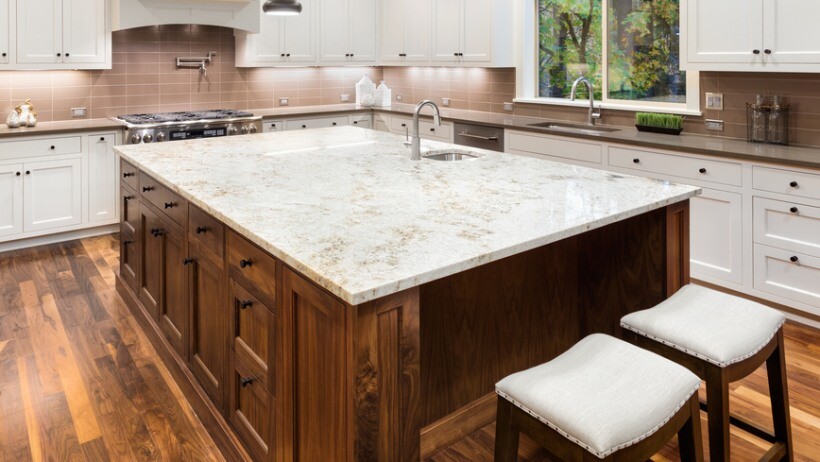 Quartz benchtops are renowned for their durability, withstanding chipping or cracking, while maintaining their polished appearance (Source: Stock)
Quartz benchtops are renowned for their durability, withstanding chipping or cracking, while maintaining their polished appearance (Source: Stock)
Both quartz and granite benchtops are highly durable, but their resistance to scratches and chipping differs. Quartz benchtops are engineered with resin, which makes them more flexible and less prone to chipping or cracking. It also offers superior scratch resistance, making it ideal for busy kitchens.
Granite is harder but more brittle, meaning it’s slightly more susceptible to chipping under heavy impact. However, it remains an incredibly tough material that can withstand daily wear and tear.
In terms of cleaning and maintenance
When it comes to cleaning and maintenance, a quartz benchtop stands out for its exceptional stain resistance. A quartz benchtop made of engineered quartz is non-porous, preventing liquids and spills from seeping in and making it easy to clean with just soapy water or a mild cleaning solution.
Granite benchtops are porous, requiring regular sealing to maintain their resistance to stains and prevent moisture absorption. Without proper sealing, substances like oil or wine can leave marks on granite surfaces.
In terms of cost
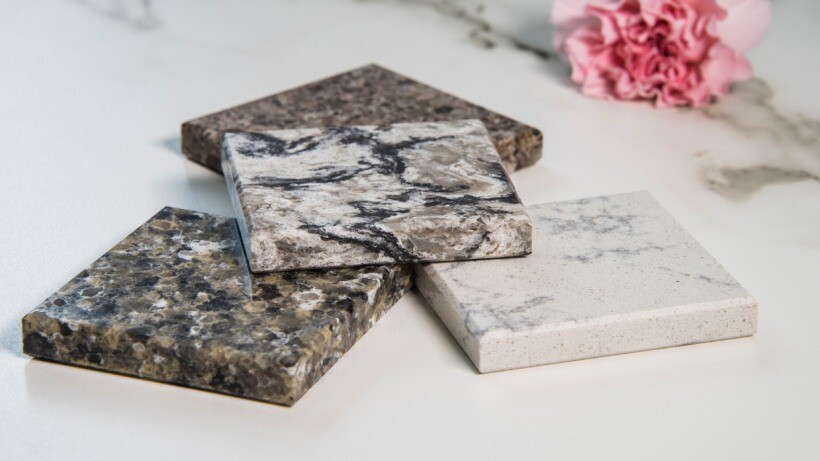 Both quartz and granite benchtops come in a variety of styles and price points, offering options to suit different budgets and preferences (Source: iStock)
Both quartz and granite benchtops come in a variety of styles and price points, offering options to suit different budgets and preferences (Source: iStock)
While many wonder if quartz is cheaper than granite, the two are often comparable in price.
Quartz benchtops cost around $400 to $600 per square metre for supply and installation. The replacement cost for quartz benchtops is approximately $1,500 per square metre. One of the best things about quartz is that it requires no sealing or special treatments, making it a cost-effective option in the long run.
Granite benchtops are slightly more expensive on average, at $700 to $2,000 per square metre. The replacement cost for granite benchtops is approximately $1,700 per square metre. Additionally, ongoing maintenance, such as regular sealing, is required to maintain its durability and stain resistance, which can add up over time.
If you’re considering benchtops as part of a full kitchen renovation, it’s also worth factoring in the overall cost. For example, installing an IKEA kitchen can be a budget-friendly option, with costs ranging from $1,500 to $14,000, depending on the size and materials chosen. This range of styles and designs can complement both quartz and granite benchtops.
By planning your budget carefully, you can balance the upfront costs of materials with long-term durability and maintenance requirements.
In terms of installation
Quartz benchtops are engineered surfaces, typically lighter than granite, making them slightly easier to handle during installation. They’re pre-manufactured to exact dimensions, which can streamline the fitting process.
Granite benchtops are heavier and more challenging to fit, often requiring additional structural support for cabinets to handle their weight. As a natural material, granite may need more on-site adjustments to accommodate irregularities, which can extend the installation time and complexity.
Both materials must be installed by professionals to ensure a seamless finish and to avoid costly mistakes. Be sure to include this in your kitchen renovation checklist when planning your upgrade.
Level up your kitchen with Airtasker
The right benchtop makes all the difference in your kitchen, but proper installation is extremely important to ensure durability and a seamless finish. Whether you’ve chosen quartz or granite, Airtasker makes it easy to find trusted kitchen contractors near you.
From kitchen benchtop installation to a whole kitchen renovation, there are local professionals who can handle your job with expertise. Better yet, Airtasker allows you to explore reviews, compare competitive quotes, and hire a professional who fits your timeline and budget.
Post a task today and get started!
Learn more about our contributors

Written by Jen A.
Staff Writer
Jen Avelino is an experienced writer and editor with over five years of experience. She has written for industries such as eLearning, architecture, and the gig economy, but she’s most passionate about home-related topics like renovations, cleaning, and handyman tips. Outside of writing, Jen is a coffee lover, runner, and fitness enthusiast, which often inspires her lifestyle content.
Quartz vs Granite Benchtops
| Quartz Benchtops |
Granite Benchtops | |
|---|---|---|
| Appearance |
Consistent colour and pattern; available in a wide range of colours and finishes |
Unique, one-of-a-kind natural patterns with a timeless, luxurious appeal |
| Heat Resistance |
Less heat-resistant due to resin content; hot pans can cause discolouration or warping |
Highly heat-resistant; can handle hot pans without damage |
| Durability |
Extremely durable with high resistance to scratches, stains, and chipping |
Porous surface requires regular sealing to maintain stain resistance and prevent moisture absorption |
|
Cleaning and Maintenance |
Non-porous surface ensures excellent stain resistance; low-maintenance and easy to clean |
Porous surface requires regular sealing to maintain stain resistance and prevent moisture absorption |
| Cost |
Costs around $400 to $600 per square metre; low long-term maintenance costs |
Costs around $700 to $2,000 per square metre; additional maintenance costs for sealing |
| Installation | Lighter and easier to handle; pre-manufactured for precise fitting |
Heavier and more challenging to install; requires additional structural support for cabinets |
FAQs on quartz and granite benchtops
No, it’s not recommended to put a hot pan directly on a quartz benchtop. Quartz contains resin, which can be damaged by high temperatures, leading to discolouration or warping. Always use heat pads or trivets to protect the surface.
The best stone for kitchen benchtops depends on your needs. Quartz is a popular choice for its low maintenance, durability, and consistent appearance, while granite offers natural beauty and heat resistance but requires regular sealing. For a balance of practicality and style, quartz is often the top choice for busy households.
Caesarstone is a brand of quartz, so the quality is comparable to other quartz benchtops. It’s durable, non-porous, and low-maintenance, making it a great choice for kitchens. Choosing between Caesarstone and quartz often comes down to design preferences and budget, as it offers a wide range of premium finishes.
Find kitchen renovators, fast
Post a task
Related articles
Related price pages
